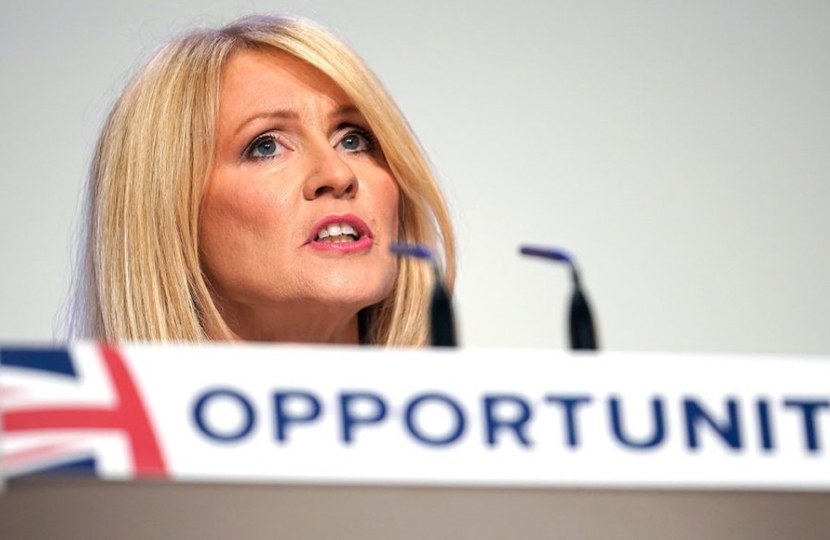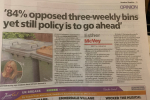
The longer Covid is with us without a vaccine, the bigger and more structural the changes will be to how we live our lives.
Since March we have already moved much more of what we do online; from work to education, doctors’ appointments to socialising. This is the direction of travel and Government needs to catch up. It needs to deliver upgraded broadband to every home. To pay for it, and provide the engineers and workforce needed to build it, Government must stop the outdated gravy train that is High Speed 2. Train travel is now 80 percent lower than pre COVID-19 levels and surveys show people’s fear of crowded spaces, travelling on public transport and working in office blocks won’t be changing any time soon.
In fact split by age range the under 35s are leading the way. Almost 70 percent want to continue working from home for the future - and who can blame them, when home-working removes all travel costs and time wasted commuting.
There have been concerns about HS2 for sometime; its runaway costs (£100billion and counting), its impact, its viability - but it’s COVID that has really exposed how out of date and exorbitantly expensive it is. Dreamed up in 2004 and still not set to be delivered up north until 2040 it will be redundant before it is delivered.
Boris’ Government is determined to get the country to “build, build, build” and rightly so, with a focus on infrastructure, but with hard times ahead and with the UK officially having just gone into recession, we need to invest in the right infrastructure and keep an eye on cost too.
Soon the Chancellor will need to step up his plans for reviving the economy and saving livelihoods, what better way to demonstrate the nimbleness of this data-driven People’s Government than to scrap HS2 in light of lockdown’s transformational impact on the economy?
The country desperately needs 1 gigabit-capability and according to the Government’s Future Telecoms Infrastructure Review this would cost around £30 billion.
Building a 5G network on top would require a further £3-4 billion; meaning that, according to Government figures, connecting up the whole UK with the next-generation of wireless communications technology and full-fibre infrastructure would cost the public a third of the taxpayers’ current bill to foot HS2 - and a fifth of HS2’s likely end cost.
Since 2015, the Government has spent £2billion connecting nearly 96 percent of the country to (not so fast) super fast broadband providing speeds of 24 megabits per second or more, a far cry from the 1 Gigabit we need.
International comparisons show the UK is lagging behind - outside the top 10 countries on the global broadband average speed league table - behind countries like Latvia, Taiwan and Norway.
And Which? found that 30 percent of people have had internet connections that did not meet their needs during lockdown, cutting them off from vital day-to-day services like banking, shopping for food and getting health check ups. Internet access isn’t just nice to have, it's an essential part of post COVID living.
Lockdown has intensified the gap between those with good digital infrastructure and those without it.
A digital divide is opening up and widening across the country which must be stopped in its tracks. By scrapping HS2 and investing in high class digital infrastructure, the Government would be sending a strong signal that the UK is a country in which anyone can get on, regardless of background or postcode. Only by providing this digital infrastructure can the Conservatives truly deliver the levelling up agenda, creating jobs now and for the future.
Esther McVey is the founder of Blue Collar Conservatism and former Cabinet Minister
This article was first published on August 12.

